The #1 Worst Food for Arthritis, Says Dietitian
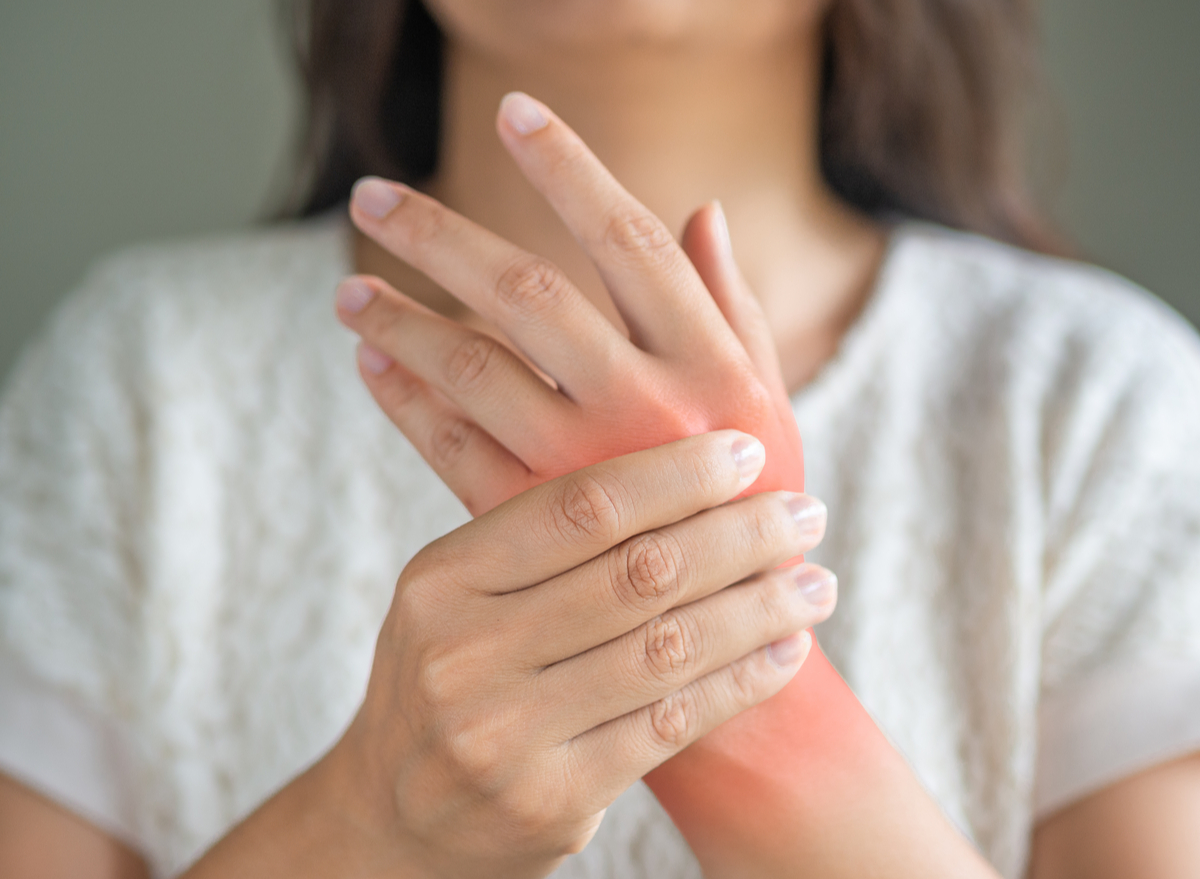
Additional reporting by Leo Andreoli.
Picking out the #1 worst food to eat if you have arthritis isn't easy, and that's because an arthritis diagnosis comes with a lot of variables.
For one, what makes one person's joint pain worse may be totally different from what exacerbates another's, according to Heidi Turner, MS, RDN, CD, an integrative registered dietitian nutritionist with Food Logic, who specializes in autoimmune and inflammatory conditions.
Secondly, there are various types of arthritis, each of which may be made worse by something different in the diet. Four common forms of arthritis are osteoarthritis, which is a wearing down of the cartilage in the joints due to aging; rheumatoid arthritis (RA), an autoimmune disease in which the immune system attacks healthy cells and causes inflammation typically in the hands, wrists, and knees; gout, which usually affects one joint at a time, often starting with the big toe, and ankylosing spondylitis; or ankylosing spondylitis (AS), which reduces the flexibility of the spine.
RELATED: Telltale Signs You Have Arthritis
"Everybody's different; one person with osteoarthritis can eat a food (and feel fine) while another can have a really bad reaction to it," says Turner.
With that in mind, to find the #1 worst food for arthritis, the solution is to try an "elimination diet," that is, eliminating foods to identify those that make you feel better when you stop eating them. Read on to learn more about how to try an elimination diet to pinpoint the foods that worsen arthritis symptoms as well as the most likely culprits, and for more on how to eat healthy, don't miss The #1 Best Juice to Drive Every Day, Says Science.
Start cutting out processed foods.
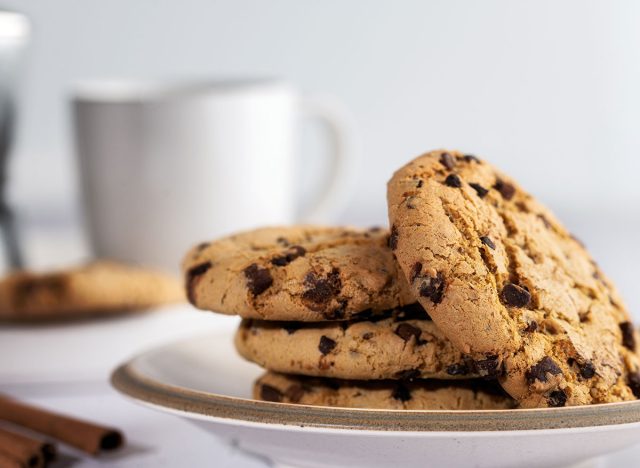
While an elimination diet will help you find the worst foods for your arthritis, Turner says processed and high-sugar foods are generally the worst foods for sufferers of any type of arthritis for the same reasons they are harmful to your overall health. "Foods that contain a lot of chemicals and preservatives, high-starch foods, sugars, highly-processed grains, things like that will encourage inflammation and are what you want to get out of your diet first and replace with whole foods," she says.
Minimize fried and fatty foods.
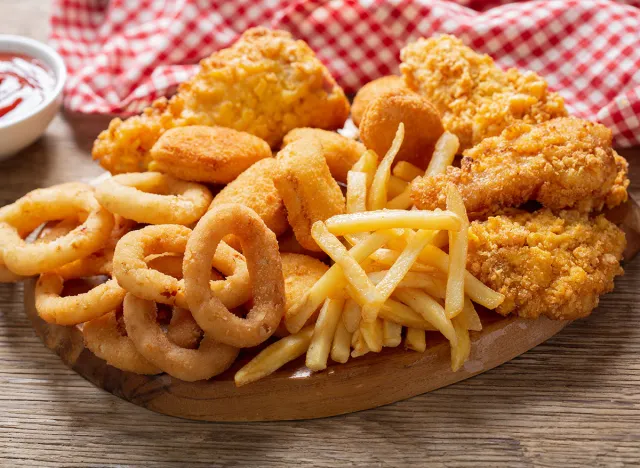
New research from Mayo Clinic's Center for Individualized Medicine suggests a connection between an unhealthy gut microbiome and rheumatoid arthritis. The trillions of bacteria in the gastrointestinal tract are impacted by what you eat, and an imbalance of healthy and unhealthy bacteria may make RA symptoms worse, according to the study.
What are those foods that cause an unhealthy gut? Inflammatory foods like saturated and trans fats, fried foods, corn oil, and baked goods. "If you're working with a lot of gut issues, then you might try to take out those known inflammatory foods, including gluten and dairy," says Turner.
Draw down the nightshades.
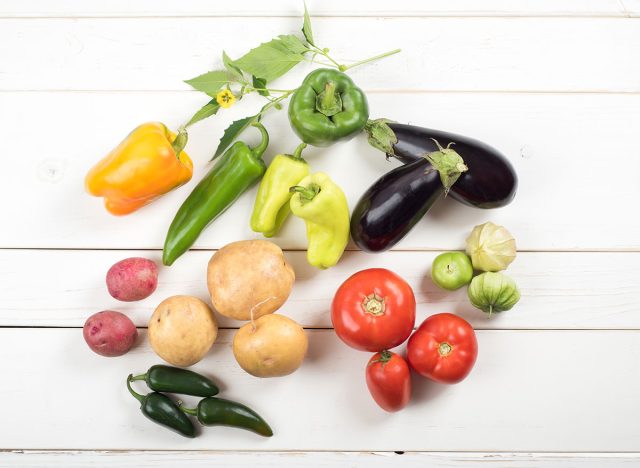
Some people with arthritis find that eating tomatoes, eggplant, potatoes, and peppers trigger arthritic swelling and stiffness. "Eating nightshade plants can irritate the joints; I see that quite a lot in my practice," says Turner.
The inflammatory reaction may be due to a buildup of a bitter-tasting chemical found in nightshade plants called solanine, according to the Cleveland Clinic. However, giving up nightshades come with a downside: you'd miss out on some highly nutritious foods, the Cleveland Clinic notes.
Beware of the beer.
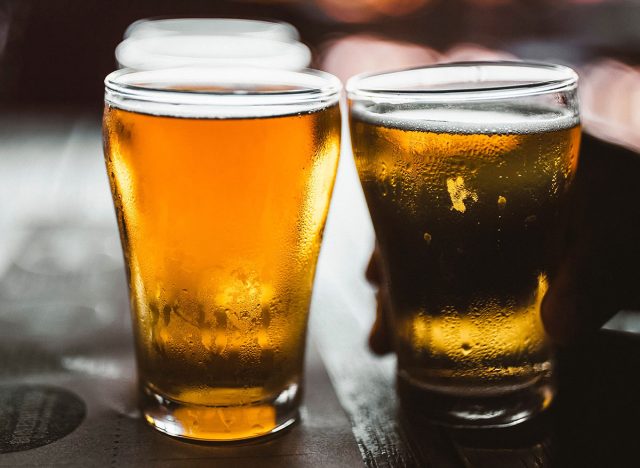
The form of arthritis known as gout occurs when there is too much uric acid in the body and crystals of uric acid accumulate in the joints, causing swelling and pain. Uric acid is the result of the breakdown of chemical compounds in certain foods called purines. "Gout is its own little beast," says Turner. The worst foods to eat if you have gout are "foods high in purines like organ meats, alcohol (especially beer), sardines, and sweet beverages like soda and juices with high fructose corn syrup," she says. Even certain vegetables, like cauliflower and asparagus, are higher in purines than others and may cause inflammation in a joint.
Because foods can affect people so differently, eliminating certain inflammatory foods and monitoring how your body reacts may be the best way to identify those that worsen your arthritis symptoms, says Turner. Other tactics to try, she says, are adopting a paleo diet or Mediterranean-style diet. Both include fruits, vegetables, nuts, seeds, lean meats, and fish and shun added sugars and processed grains. To learn more about the health benefits of this style of eating, read What Happens to Your Body on the Mediterranean Diet.









